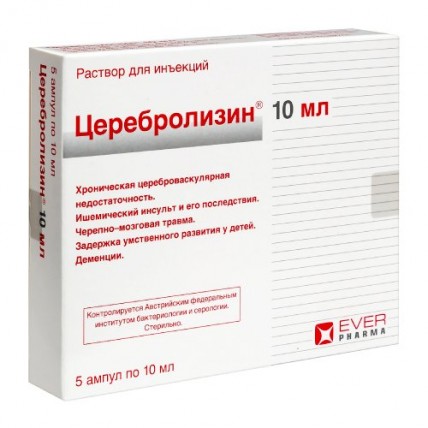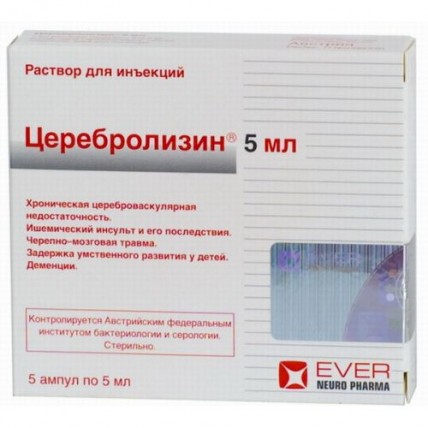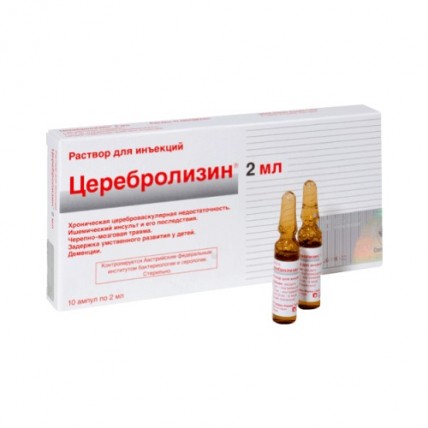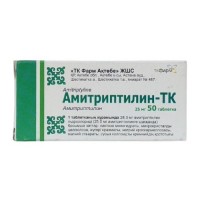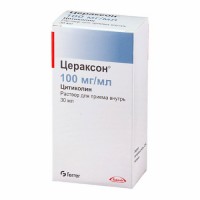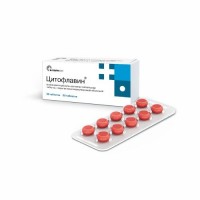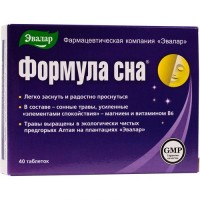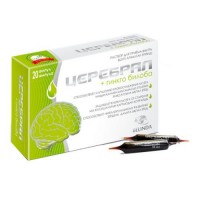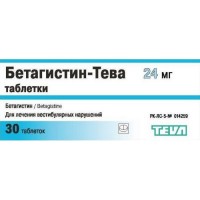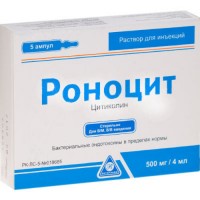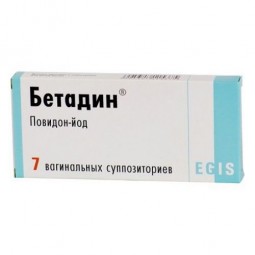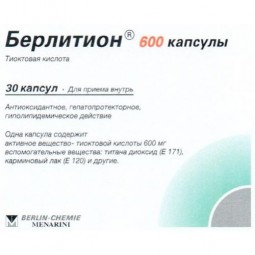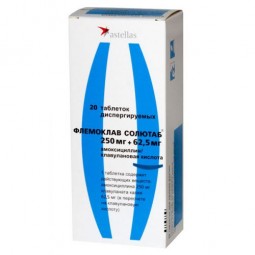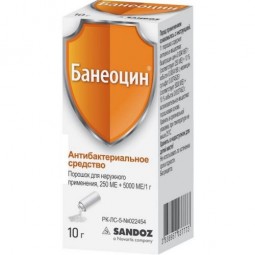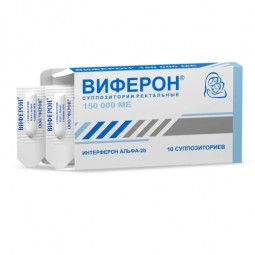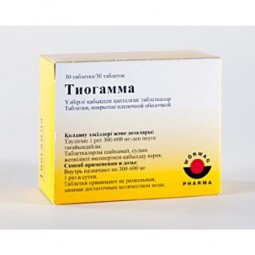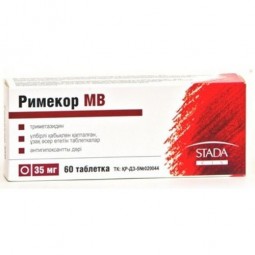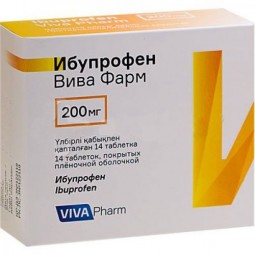Cerebrolysin®
- $53.00
What is Cerebrolysin®?
Cerebrolysin® is a neurotrophic medication used to treat various conditions affecting the central nervous system (CNS).
This injectable solution contains a concentrated mixture of peptides derived from porcine brain proteins.
Its unique formulation supports brain regeneration and protects against degenerative diseases.
Cerebrolysin® has been clinically used in over 50 countries, providing benefits for patients recovering from strokes, traumatic brain injuries, and cognitive decline associated with dementia.
Composition of Cerebrolysin®
Each milliliter of Cerebrolysin® solution contains:
- Active ingredient: Cerebrolysin concentrate (a proteolytic peptide fraction from porcine brain proteins) – 215.2 mg.
- Excipients: Water for injection.
This straightforward composition allows Cerebrolysin® to deliver neuropeptides that support brain cell regeneration and repair, with the water base ensuring it is suitable for both intravenous and intramuscular administration.
How does Cerebrolysin® work?
Cerebrolysin® works by supporting the brain’s natural repair processes and protecting it from further damage caused by injuries or degenerative conditions. Its key mechanisms include:
- Brain cell regeneration: It helps repair damaged brain cells, enhancing the brain's recovery after trauma or neurological damage.
- Improved synaptic plasticity: Cerebrolysin® boosts the brain’s ability to form new connections, which is vital for learning, memory, and cognitive functions.
- Energy balance and blood circulation: It optimizes energy use in brain cells and improves microcirculation, which is crucial for recovery from strokes and brain injuries.
- Neuroprotection: By reducing inflammation and minimizing oxidative stress, it helps protect neurons from further damage.
In conditions like Alzheimer's disease or stroke, Cerebrolysin® not only prevents further damage but also stimulates the brain’s natural healing mechanisms, helping improve cognitive and motor function.
What are the main benefits of Cerebrolysin®?
Cerebrolysin® has shown positive effects in several neurological conditions:
- Alzheimer's and Vascular Dementia: Helps improve cognitive functions and slow disease progression.
- Stroke Recovery: Supports faster recovery of motor and cognitive functions after ischemic or hemorrhagic strokes.
- Traumatic Brain Injury: Improves consciousness levels, memory, and attention in patients suffering from head injuries.
How is Cerebrolysin® administered?
Cerebrolysin® is administered by injection, either intramuscularly (up to 5 ml) or intravenously (up to 50 ml in diluted form).
The treatment duration and dosage depend on the condition being treated.
Below is a detailed dosage table for different conditions:
| Indications | Daily Dosage | Method of Administration | Time for Intravenous Injections | Treatment Duration |
|---|---|---|---|---|
| Cerebrovascular disorders (including Alzheimer's-type senile dementia and vascular dementia) | 10–30 ml | Intravenous, Intramuscular (≥ 5 ml) | 15–60 minutes | 4 weeks |
| Ischemic stroke | 20–50 ml | Intravenous, Intramuscular (≥ 5 ml) | 15–60 minutes | 10–21 days |
| Hemorrhagic stroke | 30–50 ml | Intravenous, Intramuscular (≥ 5 ml) | 15–60 minutes | 10–21 days |
| Traumatic brain injuries | 20–50 ml | Intravenous, Intramuscular (≥ 5 ml) | 15–60 minutes | 7–30 days |
Additional Practical Guidelines for Administering Cerebrolysin®
Age Range: Cerebrolysin® can be used across all age groups, including infants, when neurological issues are diagnosed.
Duration After Stroke or TBI: There are no pharmacological limits on how long Cerebrolysin® can be used post-stroke or TBI. Treatment duration should be guided by patient progress.
Evening Dosing: If a patient arrives in the evening, administer the first dose immediately. Afterward, morning administration is preferred due to its stimulating effects.
Key Instructions for Use
- Single-use only: Use the solution immediately after opening the ampoule.
- Sterility: Ensure sterile handling, using disposable IV sets and cannulas.
- Ampoule Handling: Break the ampoule only when ready to administer. Do not leave it open unattended.
Administration Methods
- IV Infusion: Dilute 10–50 ml of Cerebrolysin® in 100 ml of saline or glucose solution. Infuse over 15–60 minutes.
- IV Injection: Inject up to 10 ml undiluted over 3 minutes.
- IM Injection: Inject up to 5 ml undiluted over 3 minutes.
Be sure to flush IV lines with saline before and after administration to maintain sterility.
Who can use Cerebrolysin®?
Cerebrolysin® is generally prescribed for adults and elderly patients, particularly those over the age of 65, to treat conditions like Alzheimer's disease, vascular dementia, stroke, and traumatic brain injury. It is designed for individuals experiencing neurological damage or cognitive decline.
However, Cerebrolysin® is not limited to older adults. In specific cases, it may also be used in younger adults or even infants and children, particularly when diagnosed with pediatric neurological disorders. While it is not commonly used in pediatric populations, reports from various countries have shown its use in infants when medically necessary.
Cerebrolysin® is particularly beneficial for individuals who:
- Suffer from neurodegenerative diseases such as Alzheimer's and dementia.
- Are recovering from strokes, both ischemic and hemorrhagic.
- Have experienced traumatic brain injuries (TBIs).
- Experience cognitive impairments such as memory loss, attention deficits, or learning difficulties.
Safety in Special Populations
- Elderly patients: Cerebrolysin® is frequently used in this group, especially to address age-related cognitive decline.
- Pregnant and breastfeeding women: Cerebrolysin® should be used with caution. Its use is generally avoided unless absolutely necessary, and only under a doctor’s supervision. If treatment is required during breastfeeding, discontinuation of breastfeeding might be recommended.
- Children and adolescents: The use of Cerebrolysin® in children under 18 is not widely recommended due to insufficient data, although it may be considered in rare cases under close medical supervision.
What are the potential side effects of Cerebrolysin®?
Most side effects are rare, but some patients may experience reactions such as:
- Common reactions: Allergic responses, injection site irritation, headaches, or dizziness.
- Less frequent side effects: Gastrointestinal issues like nausea, vomiting, or diarrhea. Some patients may also experience agitation, confusion, or insomnia. If any severe symptoms, such as seizures or significant heart arrhythmias, occur, medical attention should be sought immediately.
Can Cerebrolysin® interact with other medications?
Cerebrolysin® may interact with certain medications, such as antidepressants or monoamine oxidase inhibitors (MAOIs).
In such cases, dosage adjustments may be necessary.
It should not be mixed with solutions containing amino acids.
Always consult a healthcare provider for a thorough assessment of potential drug interactions.
How should Cerebrolysin® be stored?
Cerebrolysin® should be stored in a dark place, at a temperature not exceeding 25°C (77°F).
It should not be refrigerated or frozen.
Always keep it out of reach of children, and do not use it beyond its expiration date.
Where to Buy Cerebrolysin Online?
Looking for Cerebrolysin? We've got it at RxEli! Enjoy hassle-free shopping with worldwide shipping, including the USA, Canada, UK, Europe, Australia, and more. We're excited to serve you!
Scientific Studies
- Cerebrolysin in Patients with TBI: Systematic Review and Meta-Analysis - MDPI (March 2023): A systematic review and meta-analysis of the use of Cerebrolysin in patients with traumatic brain injury (TBI).
- Cerebrolysin in Patients with Acute Ischemic Stroke - MDPI (June 2023): Reports Cerebrolysin's influence on reducing the expression of Calpain and Caspase-3 in ischemic stroke patients.
- Therapeutic effect of Cerebrolysin on reducing impaired cerebral endothelial cell permeability - PubMed (2021): Discusses the effects of Cerebrolysin on human cerebral endothelial cell function.
- Cerebrolysin as an Early Add-on to Reperfusion Therapy - BMC Neurology (March 2023): Examines the risk of hemorrhagic transformation after ischemic stroke with Cerebrolysin as an add-on to reperfusion therapy.
- Cerebrolysin and repetitive transcranial magnetic stimulation (rTMS) in patients with TBI - Frontiers (June 2023): A study on the combined use of Cerebrolysin and rTMS in patients with traumatic brain injury.
